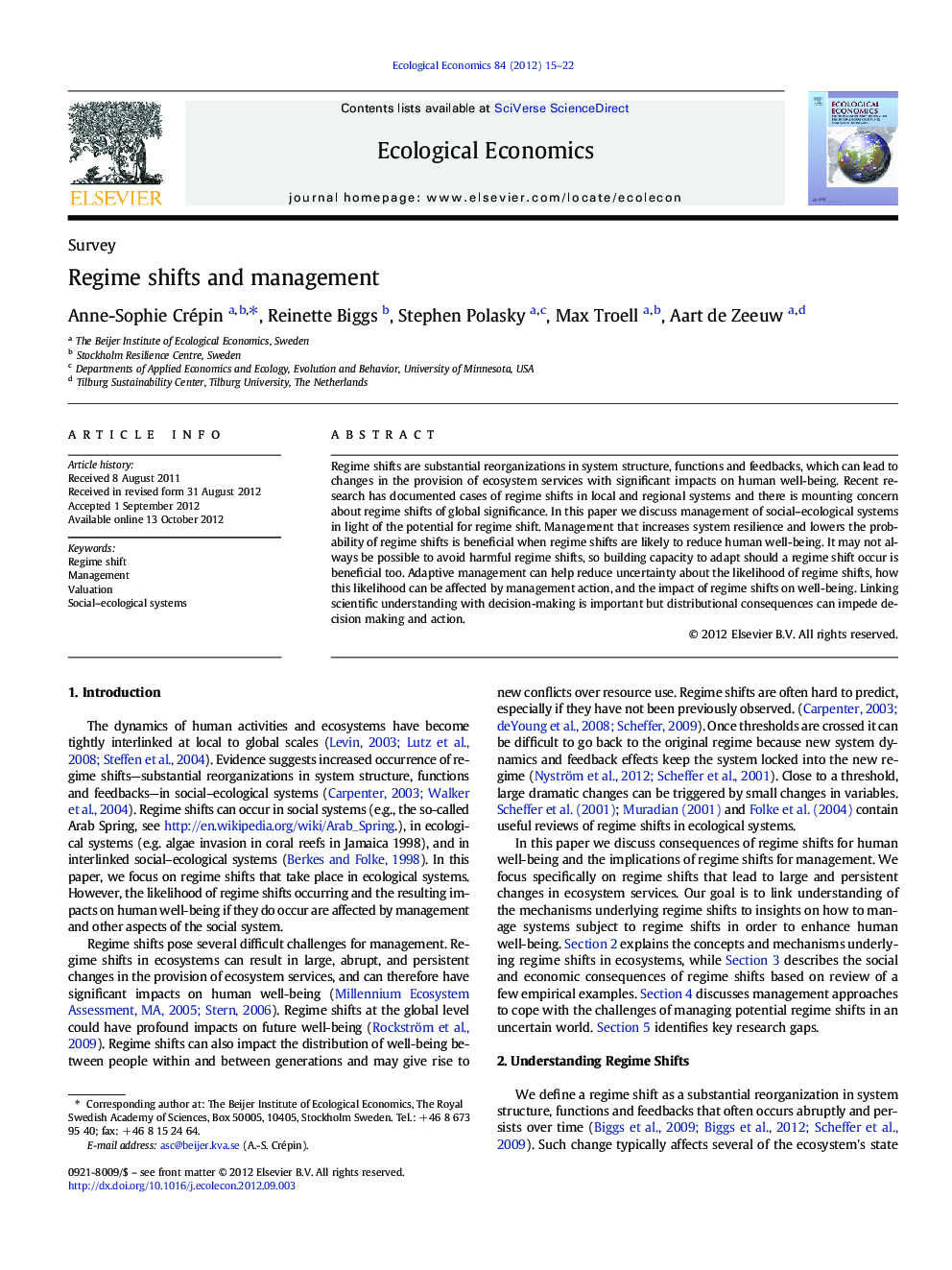| Article ID | Journal | Published Year | Pages | File Type |
|---|---|---|---|---|
| 5050044 | Ecological Economics | 2012 | 8 Pages |
Regime shifts are substantial reorganizations in system structure, functions and feedbacks, which can lead to changes in the provision of ecosystem services with significant impacts on human well-being. Recent research has documented cases of regime shifts in local and regional systems and there is mounting concern about regime shifts of global significance. In this paper we discuss management of social-ecological systems in light of the potential for regime shift. Management that increases system resilience and lowers the probability of regime shifts is beneficial when regime shifts are likely to reduce human well-being. It may not always be possible to avoid harmful regime shifts, so building capacity to adapt should a regime shift occur is beneficial too. Adaptive management can help reduce uncertainty about the likelihood of regime shifts, how this likelihood can be affected by management action, and the impact of regime shifts on well-being. Linking scientific understanding with decision-making is important but distributional consequences can impede decision making and action.
⺠Evidence suggests increased occurrence of regime shifts in social-ecological systems. ⺠Regime shifts often impact significantly on ecosystem services and human well-being. ⺠Managing regime shifts focuses on both prevention and building adaptive capacity. ⺠Adaptive management can help reduce uncertainty about regime shifts. ⺠Distributional consequences of regime shifts can impede decision-making and action.
